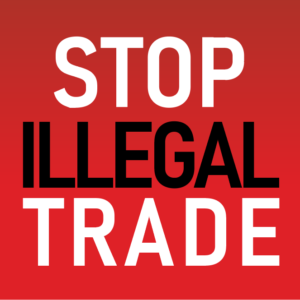ISLAMABAD: The government’s compromises with real estate sector and tax authorities’ failure to take action against over 3,400 housing societies that remain outside the tax net are increasing the share of black money in the country and widening the tax gap.
The government is turning away from the realty sector at a time when the Financial Action Task Force (FATF) has handed Pakistan a new action plan that includes a condition on regulating the real estate sector business due to high chances of “money laundering”.
A study of just three of Karachi’s biggest property transaction hubs suggests that in just 300 property transactions Rs13 billion was paid over and above the Federal Board of Revenue’s (FBR) determined property valuation rates, indicating the extent of black or untaxed money that is circulating in the market.
The difference between FBR’s valuation rates and the actual market rates is then bridged from income sources that remain unexplained.
Sensing this huge undocumented business, the Federal Tax Ombudsman (FTO) had in December 2019 directed the FBR to take action in case of 11,723 housing societies that were collecting taxes from the clients but were not depositing in the national kitty.
The latest official report revealed that about 3,434 societies and dealers still remain outside the tax net.
FBR spokesman Syed Nadeem Rizvi did not respond to a question about the number of cases initiated and finalised against those real estate agents and housing societies that remain outside the tax net.
The government had made an attempt to regulate the real estate sector by treating its income as normal business income, which would have required more disclosure about the source of income. However, the proposal was shelved on the eve of budget approval under political pressure.
Pakistan will have to “demonstrate that supervisors were conducting both on-site and off-site supervision commensurate with specific risks associated with designated non-financial businesses and persons (DNFBPs), including applying appropriate sanctions where necessary”, according to a new FATF condition.
Designated non-financial businesses and professions are the real estate agents, jewellers, chartered accountants and lawyers. A market study, based on the available FBR property value rates and the transactions reported at the most popular online platform – Zameen.com – has revealed a huge difference between the rates at which taxes are paid and the actual market prices.
There was a gap of almost Rs13 billion between the total amount paid according to the FBR valuation rate compared to the market value rate in Bahria Town, Defence Housing Authority (DHA) and Gulshan-e-Iqbal. The transactions were valued at Rs22.8 billion at the website.
In DHA, 100 property transactions were conducted at market value of Rs13.3 billion but taxes were paid at a price of Rs5.6 billion, showing a gap of Rs7.7 billion. Similarly, in Bahria Town, 110 property transactions worth Rs2.6 billion were conducted by various buyers but their FBR valuation was just Rs488 million, indicating a gap of Rs2.1 billion. In case of Gulshan-e-Iqbal, 90 property transactions were carried out at a value of Rs6.9 billion but the taxes to the FBR were paid at the value of Rs3.6 billion, showing a gap of Rs3.3 billion.
The FBR has not been going after the people who are not declaring their properties at market values for taxation purposes, despite the data being available with them in the form of withholding tax payments.
Despite these real estate agents and housing societies collecting taxes from the buyers, many of them are not depositing taxes in the national kitty nor are they filing withholding tax statements with the FBR. In December 2019, the FTO had taken notice of low tax collection from the housing societies, cooperative societies and housing authorities engaged in sale and purchase of properties by the FBR despite the existence of their transaction records.
The FTO jumped in due to “failure of the department to monitor advance tax to be collected at the time of sale, purchase or transfer and registration of immovable properties”.
The FTO had sought details of 11,723 housing societies. In its compliance report in May this year, the FBR stated that about 7,645 of these societies had been registered as withholding agents.
However, despite a lapse of over one and a half year, the FBR has failed to register almost 4,100 or 35% of the housing societies, which suggests huge tax losses from the highly flourishing real estate sector. Out of these, about 500 cases were either duplicate, lacked proper addresses or were from AJK areas, leaving it with a balance of 3,444 societies that remain outside the tax net.
Among those who could not be brought to the tax net, 1,747 housing societies are in the jurisdiction of Regional Tax Office Islamabad – the capital city and also FBR’s headquarters.
Another 1,153 unregistered cases fall in the jurisdiction of Corporate Tax Office Lahore and 674 in the Medium Tax Office Karachi, showed the record of the FTO office. The FBR has informed the FTO that it served tax notices to 2,991 housing societies but they did not respond to these notices, showing poor enforcement by the tax machinery. It has now served them with penalty notices.
The FTO had given strong-worded findings, saying “negligence, incompetence and inefficiency on part of the FBR and its field formations in the discharge of duties and responsibilities, in devising a mechanism to monitor advance tax collection”.
The World Bank in its 2019 report for giving a $400 million loan for FBR reforms had estimated that Pakistan’s revenue black hole further widened to Rs5 trillion or 26% of GDP. The World Bank paper stated that a detailed gap analysis, which had been recently completed by it, indicated that Pakistan’s tax revenue potential would reach 26% of GDP only if tax compliance were to be raised to 75%, which is a realistic level of compliance.
“This means that the country’s tax authorities are currently capturing only half of this revenue potential, ie the gap between actual and potential receipts is 50%,” said the lender. The $400 million loan also includes $34 million for automatically exchanging taxpayer data with all four provinces and to harmonise the methods for taxation of services and real estate with all provinces. “Low taxes on real estate also offer opportunities for tax evasion and money laundering,” says the World Bank 2019 report.













